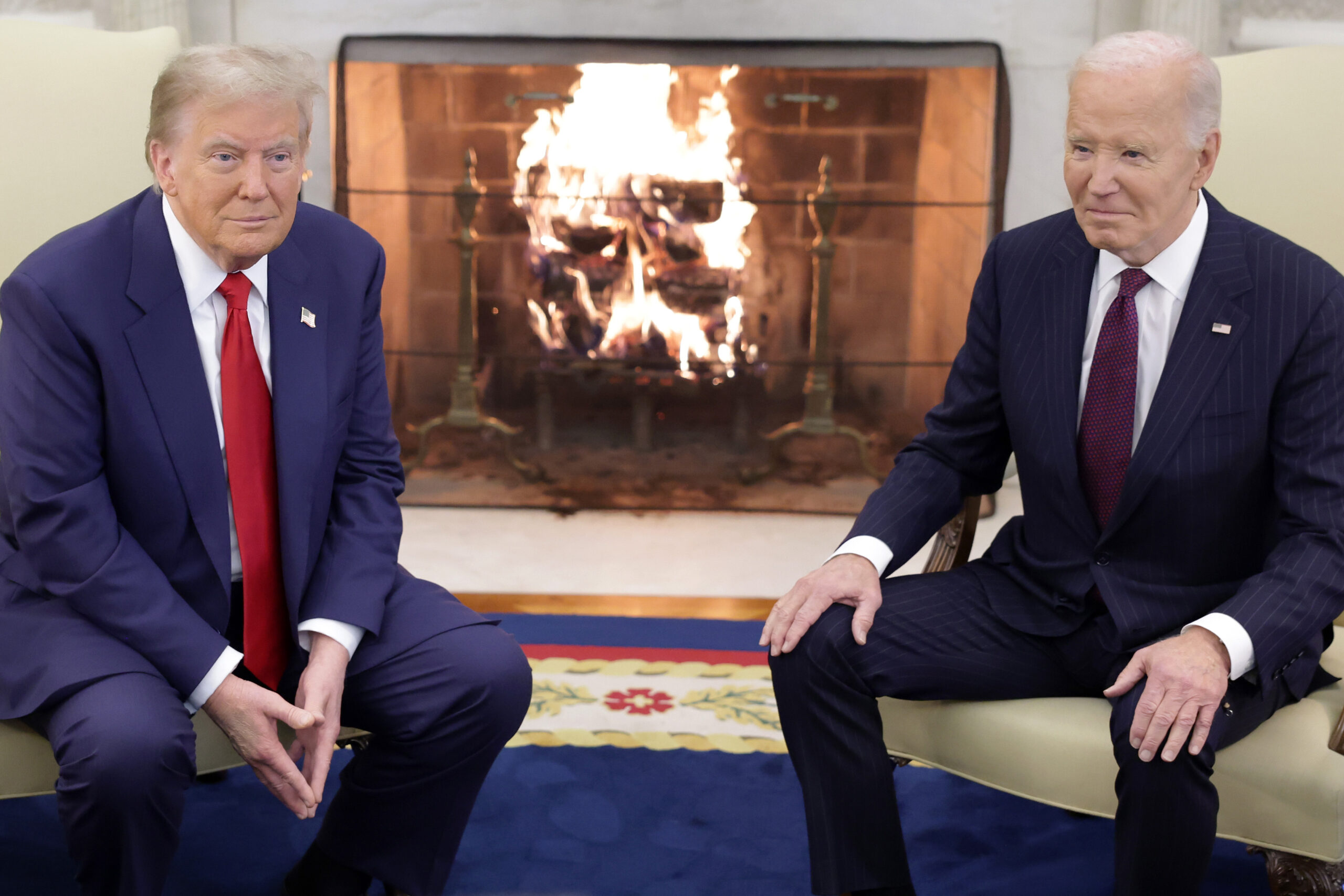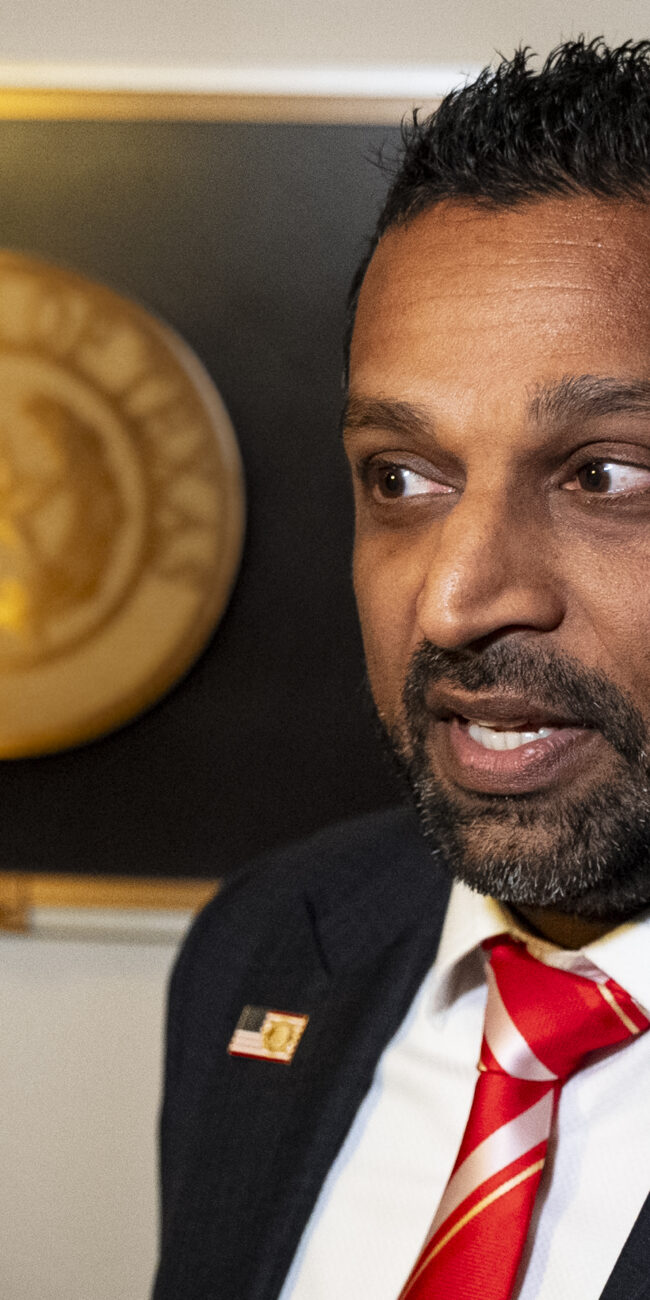
Shutdown threatens ‘chaos’ for Trump’s transition and inauguration
The collapse of Congress’ spending negotiations is throwing the presidential transition and preparations for President-elect Donald Trump’s second inauguration into chaos as Washington stares down the prospect of a government shutdown just after midnight Friday.
Federal agencies only this week began briefing the Trump transition’s “landing teams,” which began their work more than a month later than their predecessors. Now, if Congress can’t cut a deal in the next couple days, those agencies could be forced to furlough much of the staff doing that work and shut down the government offices where it’s taking place — impeding the incoming officials’ access to documents and further slowing down already-delayed preparations to take over the federal government next month.
Trump and his team are already in the “danger zone” on transition and inauguration planning because they opted to use private emails and devices, rejected federal cybersecurity support, and are working out of Mar-a-Lago, Trump’s Florida club, said Ann O’Leary, who led Hillary Clinton’s 2016 transition preparations.
“At a minimum, a shutdown of the government is going to certainly add to the chaos and the vulnerability to the U.S. government,” she added.
An OMB spokesperson warned POLITICO that such a lapse “would disrupt a wide range of activities associated with the orderly transition of power,” but declined to specify what programs and personnel would be impacted.
Agency staff are similarly in the dark. Federal staff received guidance from their leadership Thursday on what the shutdown would entail but it did not include information about how it would impact their work with the Trump transition, one State Department official, not authorized to speak on the record, told POLITICO.
The Trump transition did not respond to a request for comment.
Congress this week appeared poised to avert a shutdown with passage of a bipartisan continuing resolution that extended government funding into next year and reauthorized an array of lapsed health, agriculture and other programs. But Trump’s team, led by Elon Musk, derailed the negotiations in the past 48 hours, announcing their opposition to the bill on social media and pushing GOP leaders to demand more concessions — including a temporary or permanent lifting of the debt ceiling. That has thrown Republican congressional leadership into a tailspin as Friday’s deadline to fund the government draws near.
In the event of a government shutdown, most federal workers would not only be barred from meeting with Trump transition officials in-person but also from communicating with them via phone or email from home. Some workers can avoid such furloughs by being designated “essential” under the Antideficiency Act. But Seth Harris, a former acting Labor Secretary who has worked on three Democratic presidential transitions, told POLITICO that most transition activities likely wouldn’t qualify, other than some staff who work on national security.
“It creates yet another barrier to a smooth transition,” said Democratic health policy consultant Chris Jennings, who served on transition teams for Presidents Bill Clinton, Barack Obama and Joe Biden. “It delays their ability to effectively evaluate the dynamics on the ground, and it probably slows them down, in terms of both policy and personnel reviews, right before they’re trying to make their final high level appointments and develop their first series of executive orders and actions that they wish to take.”
Few expect a shutdown — if it happens — to stretch until Inauguration Day on Jan. 20, but lawmakers and veterans of past transitions say even a short-term disruption could impact prep work that has already begun.
On Capitol Hill on Thursday, Reps. Rosa DeLauro (D-Conn.) and Steve Cohen (D-Tenn.) were among those raising concerns that a shutdown would impact the ability of the federal government to adequately staff Trump’s swearing in at the Capitol next month.
“There was money in there for planning the inauguration,” DeLauro said of the derailed bipartisan package that would have extended government funding until March. “Now money may not be there.”
Adrienne Elrod, the head of talent and external relations for Biden’s 2021 Presidential Inaugural Committee, said furloughs could stymie nearly every facet of the massive event.
“Who’s going to hand out the tickets to the inauguration to congressional offices? Who in the congressional offices are going to hand out tickets to the inauguration to constituents?” she asked. “The people escorting individuals who will be on the stage for the swearing in — who will be doing that, who will be facilitating that process? … Are there going to be enough Capitol Police officers there to provide the ample security that will be necessary for the swearing in? Will there be people there to work with their performers, and who’s speaking?”
John Goheen, the spokesperson for the National Guard Association, told POLITICO that while the “full-time uniformed people” who typically help provide security at the inauguration are usually not impacted by government shutdowns, the staff who work on logistics behind the scenes could be.
“The National Guard is already very involved in putting together plans,” he said. “That includes deciding which units to deploy to secure the inauguration, reaching out to particular states and saying, ‘We need this and this and this’ — that all started weeks ago. You need to give states and individual soldiers and airmen adequate warning.”
Beyond the inauguration, O’Leary said the delays in the transition due to a potential shutdown and lack of cooperation with the federal government could pose grave security risks to the nation. The 9/11 Commission report, she noted, found that delays in the 2000 presidential transition due to the Bush v. Gore Supreme Court case “delayed the national security appointments and national security information being shared in a timely manner.”
The national security risk is “not just speculation,” O’Leary said. “It is documented that this has happened in the past and we need to make sure it doesn’t happen again.”
Myah Ward, Adam Cancryn and Nick Niedzwiadek contributed to this report.


